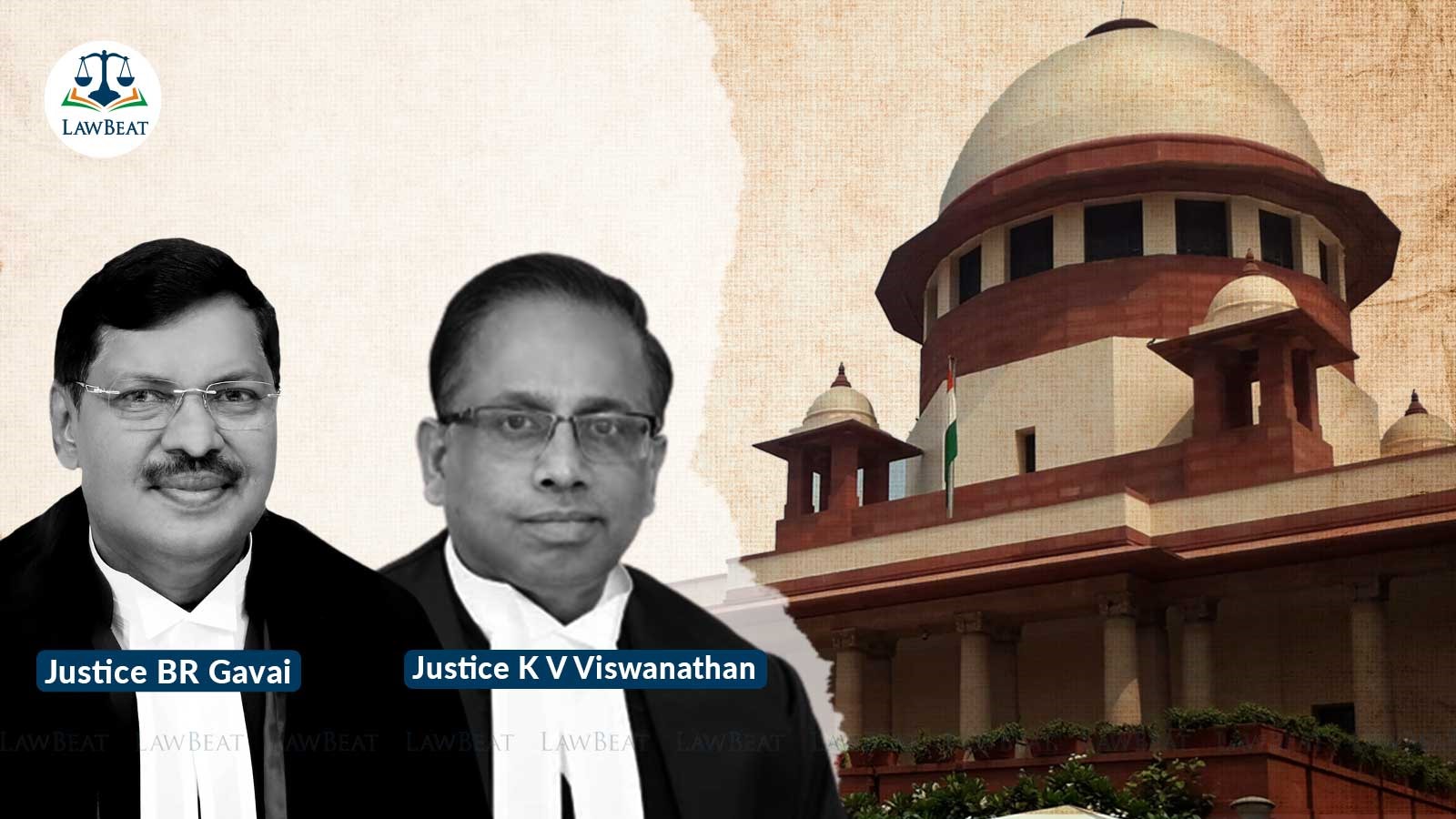'Conviction Can Be Based on Sole Testimony, But Not on Mere Speculation': SC Overturns Murder Conviction

X
The Supreme Court held that the high court could not have relied upon the testimony of one witness to give benefit of doubt to two accused and convicted the other one
The Supreme Court recently observed that a conviction could be based on the sole testimony of a witness as the principle "falsus in uno, falsus in omnibus" is not applicable in Indian criminal jurisprudence. However, a bench of Justices B R Gavai and K V Vishwanathan found fault with the Madras High Court's judgment which used the sole testimony of one witness to convict the appellant and acquit two others in a murder case.
"We are, therefore, of the considered view that the High Court has grossly erred in convicting the appellant while giving benefit of doubt to accused Nos 2 and 3," the bench said, stressing that the conviction on the basis of conjectures and surmises is impermissible.
Appellant George challenged the High Court's Madurai bench order of November 1, 2019, which upheld the conviction and sentence qua him insofar as the offence punishable under Sections 294(b), 341, and 302 of the IPC but he was acquitted of the charge under Section 506(ii) IPC.
An FIR in the case was lodged on May 16, 2015 at Police Station Sathankulam, District Thoothukudi by one Kovilraj alleging commission of offence punishable under Sections 294(b), 342, 302 and 506(ii) IPC by the appellant, Rajarathinam and Albert.
The complainant stated that he was a Church Member and Choir Master in Immanuel Church at Ananthapuram. He was in favour of Arputharaj in the Diocese Election, due to which the appellant, who supported the rival faction of Pushparaj entered into a wordy quarrel with his son (Praveen Kumar) about a year prior to the day of the incident.
When he, his wife Chandra, and his son had gone to Ananthapuram for a Consecration Festival on May 15, 2015, in the intervening night of May 15-16 2015, at around 00:30 hours, the informant’s son was stabbed by the appellant on the neck, while two others held his hand, resulting into his death.
The trial court convicted the three accused but the High Court acquitted two other accused and upheld the conviction and sentence of the appellant.
The appellant's counsel submitted that on the basis of the very same evidence of Kovilraj, the High Court had acquitted two accused but convicted him. On this short ground alone, the appeal deserves to be allowed, he argued.
The bench noted that the High Court had found the evidence of Kovilraj unreliable insofar as accused Nos 2 and 3 were concerned and therefore did not find it safe to convict them and granted them the benefit of doubt.
The High Court has observed that the evidence of Kovilraj insofar as accused Nos 2 and 3 are concerned appears to be unnatural. The High Court has also observed that, since the incident had taken place at around 300 metres away from the Church, it is difficult to believe that Kovilraj could have actually witnessed the overt act attributed to accused Nos 2 and 3, court noted.
"However, strangely, the High Court, on the basis of very same evidence of Kovilraj, has believed it qua the appellant herein and confirmed his conviction," the bench said.
Court also pointed out the High Court had observed that in the course of natural events, except the appellant, no one else could have caused the injury to the deceased.
"In our considered view, the said finding is based purely on conjectures and surmises," the bench said.
The bench pointed out that the High Court had taken note of the fact that the incident occurred 300 metres away from the Church and that could not have enabled Kovilraj to have actually witnessed the overt act that is attributed to accused Nos 2 and 3. However, the appellant involved in the same overt act had been convicted on the basis of the same testimony, it highlighted.
"No doubt that a conviction could be based on the sole testimony of a witness. Equally the principle that falsus in uno, falsus in omnibus is not applicable in Indian criminal jurisprudence," the bench said.
The bench noted in the present case, Kovilraj was the father of the deceased and was an interested witness.
"No doubt that merely because a witness is an interested witness, it cannot be a ground to discard the testimony of such a witness. However, the testimony of such a witness has to be scrutinized with greater caution and circumspection," the bench said.
"In the present case, when the High Court comes to a conclusion that it is difficult to believe that Kovilraj could have witnessed the incident in the manner narrated by him and granted benefit of doubt to accused Nos 2 and 3, the conviction of accused No 1 on the basis of the evidence of the very same witness only on the basis of conjectures and surmises, in our view, is not permissible," the bench said.
With regard to the recovery of knife, the bench said, the recovery was made from an open place accessible to one and all.
"As such, we are of the considered opinion that only on the basis of the circumstance of such a recovery, the conviction could not have been based," the bench said.
The court thus allowed the appeal and set aside the High Court's judgment. It acquitted the appellant and ordered his release forthwith if not required in any other case.
Case Title: George Vs The State of Tamil Nadu And Others
Next Story
